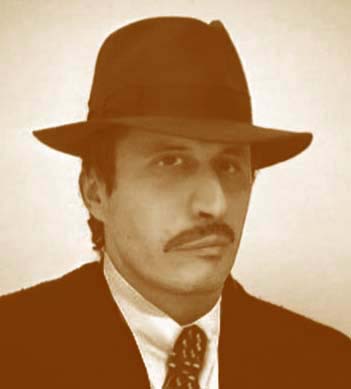A Fresh Perspective on Healthcare
 Health seems to be on everyone's mind these days. From how to get in shape to universal health insurance, everyone is talking about how to get healthy and stay that way.
Health seems to be on everyone's mind these days. From how to get in shape to universal health insurance, everyone is talking about how to get healthy and stay that way.This national obsession with health is only natural, says Dr. John Smith, senior director of health sciences for Corinthian Colleges, parent company of Everest University in Santa Ana, Calif. "Healthcare is already the largest and fastest growing industry in the U.S., and researchers expect that costs spent on the healthcare industry will double in the span of a decade," he says.
But according to Smith, there are misconceptions about healthcare and what it means. "When most of us think about healthcare, we usually aren't thinking about health at all - we are thinking about what to do when we or our loved ones aren't healthy. Our minds automatically turn to illnesses and medical treatment."
Dr. Reuven Cohn, medical program chair at Everest University in Tampa, Fla., says that this is unfortunate because it puts the focus on treatment rather than prevention. "In general, we think of our health like we think of air, when it's there, we don't even notice. We take it for granted. But when it's gone, it's the one thing we are desperate for."
The healthcare system is not just about medical treatment, says Cohn. "In fact, one of the main purposes of the allied health field is to focus on keeping people happy and healthy. It may be cliché, but prevention really is the best medicine," he states.
The rising importance of health is already having a huge impact on the economy. According to Bureau of Labor Statistics data, eight of the 20 fastest growing professions and 19 percent of all new jobs over the next decade will be in the healthcare industry. In fact, according to BusinessWeek: "If current trends continue, 30 percent to 40 percent of all new jobs created over the next 25 years will be in healthcare."
It's allied health, not the medical field that will be most affected, says Helayne Schreiber, medical assisting and medical insurance billing and coding instructor (MIBC) department chair at Everest University in Tampa, Fla. Schreiber explains that our nation's healthcare system is so large and multi-faceted it requires healthcare professionals with a range of education, experiences and skills. "It takes a lot more than just doctors to make the healthcare system run," she says. "There are a multitude of healthcare professionals working behind the scenes to make hospitals and medical offices responsive to the needs of patients."
Schreiber says that medical assistants and MIBC are two of the behind-the-scenes jobs that make healthcare institutions run smoothly, and both are in high demand. "We know that a lot of patients are intimidated by the healthcare system," she says. "We believe that a well-run doctor's office or health clinic can encourage patients to come back and get regular health check-ups, which is essential to ensuring they stay healthy."
She adds that, "this is why we offer programs in medical assisting and MIBC at Everest University. We believe that these professions are essential to our nation's healthcare industry."
Massage therapists are another example of allied healthcare professionals that focus on prevention in addition to treatment. "Massage therapists can certainly help treat patients who have suffered muscle and tendon injuries. But they also play a huge role in helping patients relax and stretch their muscles, which can prevent stress-related injuries," says Schreiber. "We teach our students at Everest University that mental and physical health are intertwined and that massage therapy is one of those rare professions where your job helps make people happy."
Learn more about training for a job in the healthcare industry
Courtesy of ARAcontent




















No comments:
Post a Comment